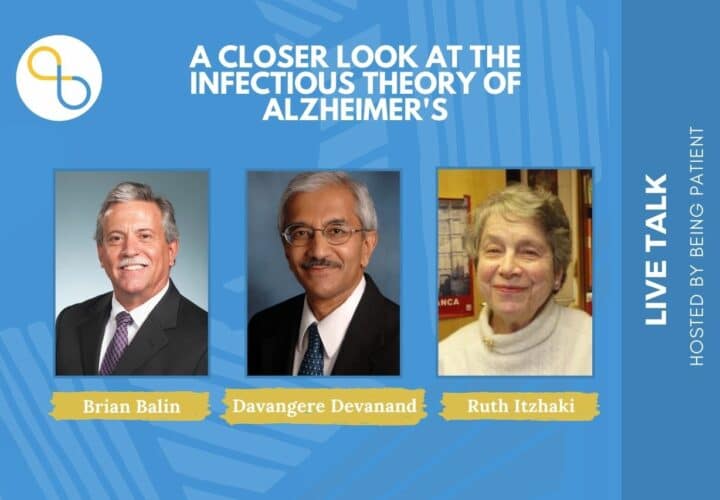Viruses and the brain: A 2022 study found the virus that causes mononucleosis boosts the risk of multiple sclerosis 32 times over.
Inflammation is a hallmark of neurodegenerative diseases including multiple sclerosis (MS) and Alzheimer’s disease. The amyloid hypothesis still dominates in the conversation about what causes Alzheimer’s and related dementias. But, especially following the COVID-19 pandemic, as mounting research hints at a potentially causative link between the SARS-C0V-2 virus, brain inflammation, and neurodegeneration, more and more researchers are interested in the role of viruses in the disease. In particular, one 2022 study drilled down into the link between mononucleosis and multiple sclerosis.
Alberto Ascherio, professor of epidemiology and nutrition at Harvard Chan School, and his team looked at more than ten million young active duty army members over the course of 20 years, with 955 diagnosed with MS during their military service. By analyzing biennial serum samples, they found MS risk increased 32-fold after EBV infection.
In contrast, other common viruses did not increase the risk of developing MS. The levels of neurofilament light chain, a biomarker indicative of neuronal degeneration in MS, were also found elevated after EBV infection.
“The hypothesis that EBV causes MS has been investigated by our group and others for several years, but this is the first study providing compelling evidence of causality,” Ascherio, senior author on the study, said in a press release.
“This is a big step, because it suggests that most MS cases could be prevented by stopping EBV infection, and that targeting EBV could lead to the discovery of a cure for MS,” Ascherio said.
It is estimated that more than 95 percent of adults are infected with the EBV. In most cases, it lays dormant like an email attachment you downloaded three years ago but never got around to deleting. Like some email attachments, the EBV isn’t always harmless. It can activate itself and initiate mono. But it may also trigger the onset of MS ten years after infection.
In MS, the body’s own immune system attacks the insulation of the nervous system — myelin sheaths that surround neurons and help propagate signals — causing fatigue and cognitive impairment among other symptoms.
“This is a big step, because it suggests that
most MS cases could be prevented
by stopping EBV infection, and
that targeting EBV could lead to
the discovery of a cure for MS.”
Due to the strength of this association and the lack of any other potential factors that could explain this relationship, Ascherio and colleagues made a strong case for causation. Though it is unclear how EBV initiates the disease, it provides the clues researchers need to develop a vaccine. In 2006, a vaccine to stop the spread of human papillomavirus, which substantially raised the risk of cervical cancer, received approval. An analysis of the effects of this vaccine in the UK showed that it almost eliminated cervical cancer in young women.
Other links between viruses and neurodegenerative disease
Infection during the 1918 flu pandemic was associated with an increased risk of developing certain neurodegenerative diseases. Worryingly, many studies now suggest that even after mild COVID-19 infections, people experience cognitive impairment and other symptoms that resemble those of neurodegenerative diseases (like Parkinson’s), and biomarkers of brain damage similar to Alzheimer’s. Now, new research offers up another clue.
Some scientists posit that a viral infection may initiate Alzheimer’s — an alternative to the controversial amyloid hypothesis. A new study showing that the Epstein-Barr virus (EBV) — a virus from the herpes family, best known as the cause of mononucleosis (or “mono”) — is the leading cause of multiple sclerosis (MS). The findings have reignited interest in — and lent a little insight to — this alternative explanation for Alzheimer’s.
Understanding the similarities and differences in the role that inflammation plays in MS and Alzheimer’s may ultimately lead to new treatments — or even a cure.
UPDATE, March 31, 2023: This January 2022 article was updated with new information to help our readers.




